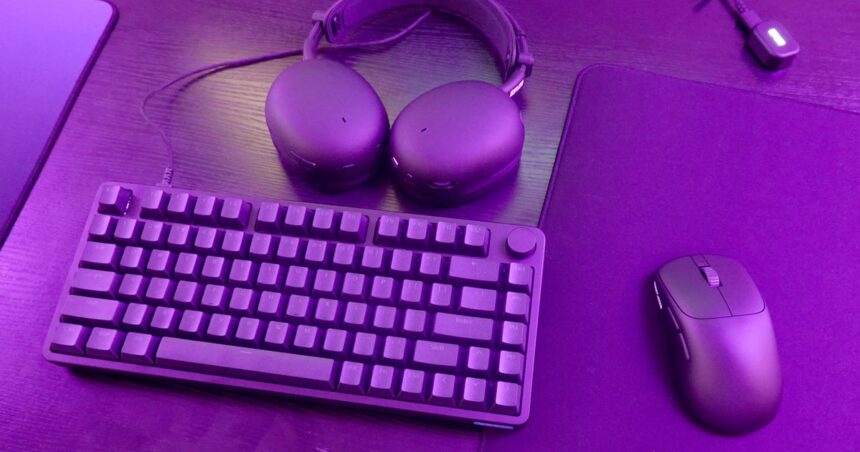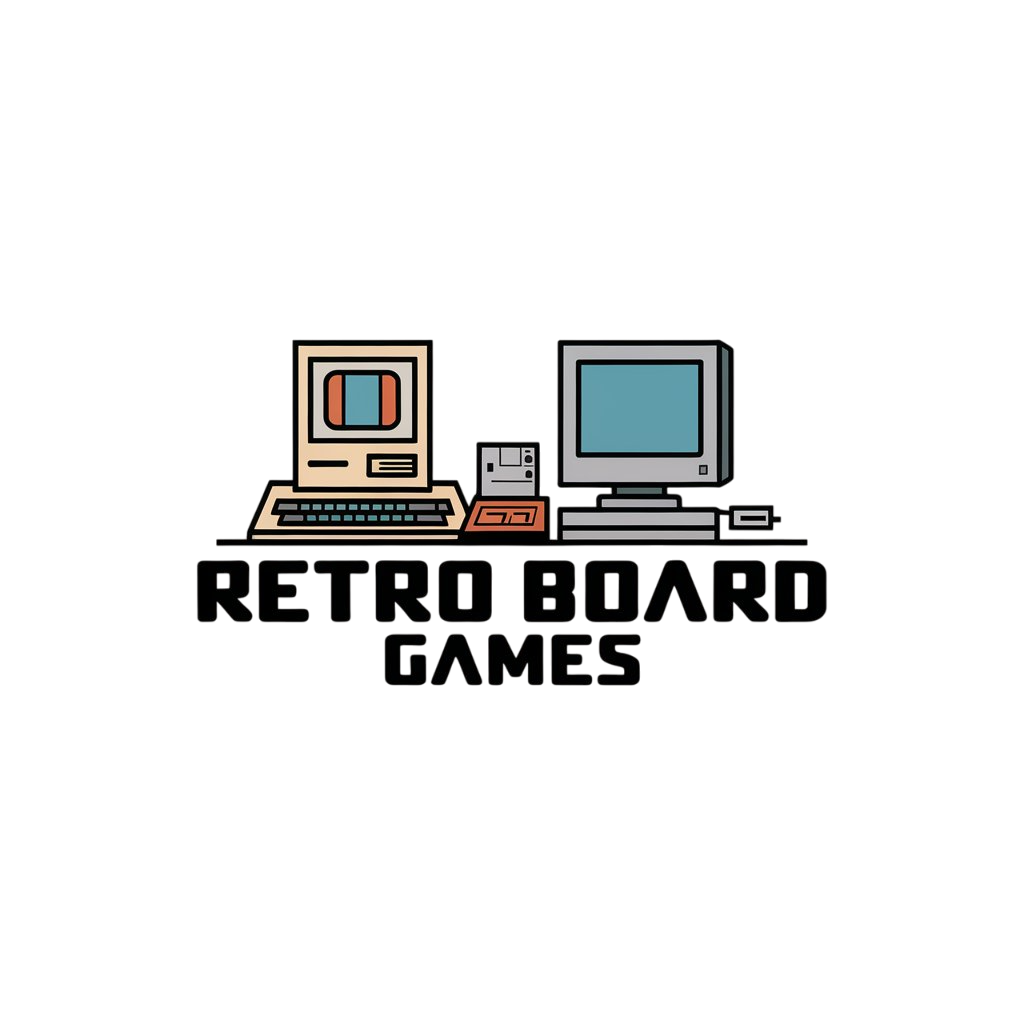At a very warm Gamescom-adjacent event this Tuesday evening, Sony has unveiled some real firsts for their Inzone range of gaming peripherals. The gaming sub-brand first came to light in 2022 with a range of stylish gaming headsets, and this was joined by some impressively designed gaming monitors, including 2024’s Inzone M10 S and M9 2 models. Sony’s Gamescom 2025 announcements go much further, with an entire ecosystem of PC peripherals, including an ANC-equipped flagship gaming headset, plus the brand’s first keyboard, mouse, wired in-ear headset and mouse pad(s).
The angle that Sony is going for with this Inzone kit is that it’s “designed to win”; expensive but high-quality gear designed for competitive PC gamers who are willing to invest heavily in their setups in order to claw out an advantage. Sony reps said that they turned to UK-based esports team Fnatic for inspiration, play-testing and more, which is an interesting departure given that Fnatic designed its own branded peripherals a few years ago – including some keyboards, headsets and mice that we still recommend.
The new Inzone kit lacks both Fnatic’s characteristic orange glow and the blinding, PS5 white of the original Inzone lineup, instead sporting a cooler matte black look – that mostly appears purple in our on-site photos, thanks to Sony’s continuing penchant for RGB-lit booths. It’s more of a mean look, but works well when integrated as a setup, not least with the Inzone M10 S monitors provided on the demo stands. Some products are also available in white, although these weren’t shown. The general focus is therefore on performance, and it seems as if Sony has mostly packed these products to the rafters when it comes to high-end materials and features, with suitably high price tags to match.
Sony Inzone H9 2
The first product unveiled is the revitalised Inzone H9 2, the second-gen version of the flagship Inzone headset that has seen a range of noteworthy upgrades to both fit the needs of professional gamers and become a headset you can use anywhere and for everything – an evolution that SteelSeries pioneered with the Arctis Nova Pro Wireless, and has since repeated with flagship headsets from the likes of Razer and Alienware.
The first noticeable thing is that it’s gotten 70g or so lighter against its predecessor, weighing just 260g. In my use at the event, I noticed it to be especially comfortable owing to its light weight and its redesigned headband with input from Fnatic that goes for more of a suspension style, a la SteelSeries and its contemporaries. They’ve also moved to a spring-hinge design as a result of Fnatic’s input for easier adjustment. On the whole, it makes for a good first impression, though only hours of gaming will determine whether it holds up over longer sessions.
Fnatic also had input with the headset’s on-board controls and their placement, and they are a good mix of buttons and wheels for things such as volume, media playback and active noise cancellation control. Yes, these cans do have ANC, and given Sony’s reputation, I had high hopes. A busy test suite seemed an ideal place to test it, and for the most part, I got a good feeling as it drowned out most of the ambient noise around me, although some higher-pitched noises weren’t dealt with as effectively. There is also an Ambient mode for when you want to hear what’s going on around you, although I felt it to be quite synthetic in its approach rather than being natural. I should stress that is a first impression, and I’ll have a better understanding in extended use.
Likewise, the drivers have been updated with the second-gen H9 to use the same 30mm carbon composite drivers as Sony has also placed in their WH-1000XM6 flagship noise-cancelling headphones. They argue that these drivers provide the headset with sharp detail, good impact and a natural tone. In my limited testing in Counter Strike 2 and Apex Legends, I felt they had good weight to the low-end with explosions from grenades and some gunfire, while the stereo imaging and directionality for footsteps and enemy voices was pretty good, too.
Other key points that were covered that I couldn’t necessarily test are the fact Sony says a claimed 30 hours of endurance, and that a five minute quick charge will give you an hour’s play. They also work wired while charging, and can connect over 2.4GHz with a receiver, via Bluetooth LE and 3.5mm. Compatibility information wasn’t provided. The microphone is a detachable boom option, and Sony says it has AI noise reduction, and is a super wide-band microphone so to capture more detail. (Of course, that didn’t work out well for the Razer BlackShark V3 Pro we just reviewed.) There is of course software integration with the Inzone Hub app, plus 360 spatial sound.
It’s definitely a stacked feature set, although whether it’s enough to justify the £300/€350 price tag is a different story. The premium gaming headset market is a tough one to crack after all.
Sony Inzone E9
The other proper audio product unveiled with the H9 2 (and technically the old H3 headset in black) was the E9: a set of in-ear monitors promising precise audio and top-notch passive noise isolation. With these, comfort and detailed sound is top priority for Sony, who want to market them to pro gamers and streamers. As IEMs classically tend to, these hook over the ear for a tight seal and should be usable for extended periods without the same fatigue as a traditional gaming headset.
The drivers inside are tuned by Fnatic, specifically targeting clarity, accuracy and detail for FPS titles. In my time using them in a couple of rounds of Counter-Strike 2, I’d wager that’s about right. I felt their sound was especially precise with fantastic directionality and imaging, with good placement of footsteps and gunfire. The audio felt crisp, but also quite impactful.
In addition, as much as I don’t get on with in-ears as well as I do with over-ears, I found the E9s to be surprisingly comfortable and once I’d hooked them over my ears, I didn’t really notice they were there. Sony is providing two sets of tips for these, with one specifically designed for noise reduction, and the other as a ‘hybrid’ set. I’m not sure which ones I had in, but the passive noise isolation was genuinely second-to-none.
Connectivity with the E9 is strictly wired, via a straight 3.5mm cable or a USB-C adapter. The “audio box” allows for software customisation, including multiple presets, an adjustable EQ and spatial audio. The set also comes with a tournament case for keeping everything together.
The E9 is priced at £130/€150, which I can see being quite compelling if you want strictly wired, and precise in-ear monitor type options, as there aren’t many other folks offering them.
Sony Inzone KBD-H75
Moving away from Sony’s typical bread-and-butter is their first proper gaming keyboard: the catchily named Inzone KBD-H75. Its spec sheet reads as if they’ve taken most of the ‘in’ features for high-power gaming keyboards in 2025 and bunged it all in a keyboard – magnetic switches with rapid trigger, 8000Hz wired polling, a smaller form factor layout, aluminium case, gasket mounting and so on.
Of course, none of the feature list is entirely novel, and we’ve seen manufacturers do all of this before, such as Razer, Wooting and so on. Nonetheless, it’s pleasant to see Sony enter the space with an option that has the potential to be competitive right out of the gate.
And on first impression, it’s some good and some less good. As much as the top case is machined aluminium for a durable finish (and there isn’t any deck flex I could feel), the ‘board was a little lighter than I expected. The keycaps are at least PBT for a durable finish, and there is a pleasant texturing to them under finger for more grip.
The decision to go with a 75 percent layout (a squished tenkeyless option) is a Fnatic decision in the name of providing more desk space without sacrificing too much on features. There is a volume dial in the top right corner for good measure.
It’s inside where things get interesting, with the decision to go for magnetic switches with rapid trigger a virtual given. I asked one of the Sony representatives which switches they were using, and to their credit, they told me – these are pre-lubed Gateron KS20 HE switches, and Sony told me this keyboard is technically hot-swappable, though doing so will fall outside the warranty.
The pre-lubricated switches provided both a smooth and satisfying keypress with the added internal benefit of gasket mounting providing a slightly bouncier and more responsive feel under finger. The key travel is also slightly shorter at 3.4mm than the more standard 4mm from traditional mechanical switches to help with speed.
Also helping with speed is the addition of rapid trigger powers, which provides virtually instant keypresses by virtue of being able to set both the actuation and reset point of a specific switch. You have the choice to go as far up as 0.1mm and as far down as 3.4mm in software if you choose. I tested the keyboard with it off by default, but turned it on for movement in an Apex Legends demo in the Inzone Hub software, and customisation is easy, but there isn’t much else in the software other than that, RGB lighting control, and button remapping.
A notable absence from the KBD-H75 is the presence of SOCD, or the kind of ‘Snap Tap’ tech we’ve seen in Razer, Wooting, SteelSeries and others in the name of unnaturally quick side-to-side movement to the point Valve has wielded the ban hammer for those who use it in online Counter Strike 2. It’s as a result of this that Sony hasn’t decided to put it in this keyboard, as per a conversation I had with a represenative, although they said it could potentially be added in a software update.
The Inzone KBD-H75 launches for a high price of £250/€300, initially in ANSI US layout as shown off, but they assured me that different layout versions for UK, France, Germany and Pan-Nordic will be coming in Spring 2026.
Sony Inzone Mouse A
I’ve perhaps saved the most surprising for last, as Sony also unveiled Inzone’s first gaming mouse, with the Inzone Mouse A. This is their take on the burgeoning market of ultra-light gaming mice in recent years to be right on trend with what competitive and casual players are switching to.
The headline with the Inzone Mouse A is that it weighs just 48.4g, which is diabolical, and Sony said in a briefing that it could have been even lighter. For reference, the brand new Razer DeathAdder V4 Pro is some 57g, while the Logitech G Pro X Superlight 2 Dex is positively hefty at 60g. In hand, it feels very light, but the quality of the plastics used give it a well-made, dense feeling to me.
It’s bereft of a lot of on-board controls and additional buttons, opting for a slightly more scuplted shell that fits my traditional palm grip well. The front edge of the mouse is also quite low to the mousepad to provide more optimal grip. The shape and low weight have been helped along by Fnatic who provided a lot of input into how they wanted it to feel.
It’s using a custom PixArt PAW 3950IZ sensor that Sony says provide the mouse with a zippy 30,000 DPI, although most people will probably use it at a much lower setting or scale their in-game sensitivity settings accordingly – I turned it down to 1600 DPI in both Apex Legends and Counter Strike 2 in my experience for more precision. For good measure, it also has an 8000Hz wireless polling rate thanks to a similar wireless receiver on a cable arrangement to the DeathAdder V4 Pro (you can also use it wired), plus optical switches inside for a snappy and responsive feel. Out of all of the products shown, it’s probably the one I’m most excited for.
By the looks of things, there isn’t any Bluetooth connectivity with the Inzone Mouse A, while battery life sits at up to 90 hours, which is competitive against key rivals. I’m not too sure on how the polling rate affects battery life, although I’d expect a vast drop-off. Software customisation is with Inzone Hub, and it is a little basic on first impression, providing means of changing DPI and polling rate, plus button mapping.
The Inzone Mouse A also feels like the most competitively priced of the lot at £150/€180, which is very similar to that of Razer and Logitech’s options, although the two accompanying mousepads less so. The £90/€100 Inzone Mat F is a mat designed specifically for precision in tactical FPS titles such as Valorant and CS2 with a 6mm depth, premium stitching and an anti-slip underside, while the £50/€60 Inzone Mat D is designed for battle royale FPS titles such as Fortnite where speed is important. It sits lower at 4mm, with premium stitching and a rubber anti-slip base.
So there you have it – Sony’s brand new range of Inzone peripherals, which genuinely impress in my limited hands-on time thus far. If they play their cards right, this could just be one of the best launches in a while when the products come in September.






